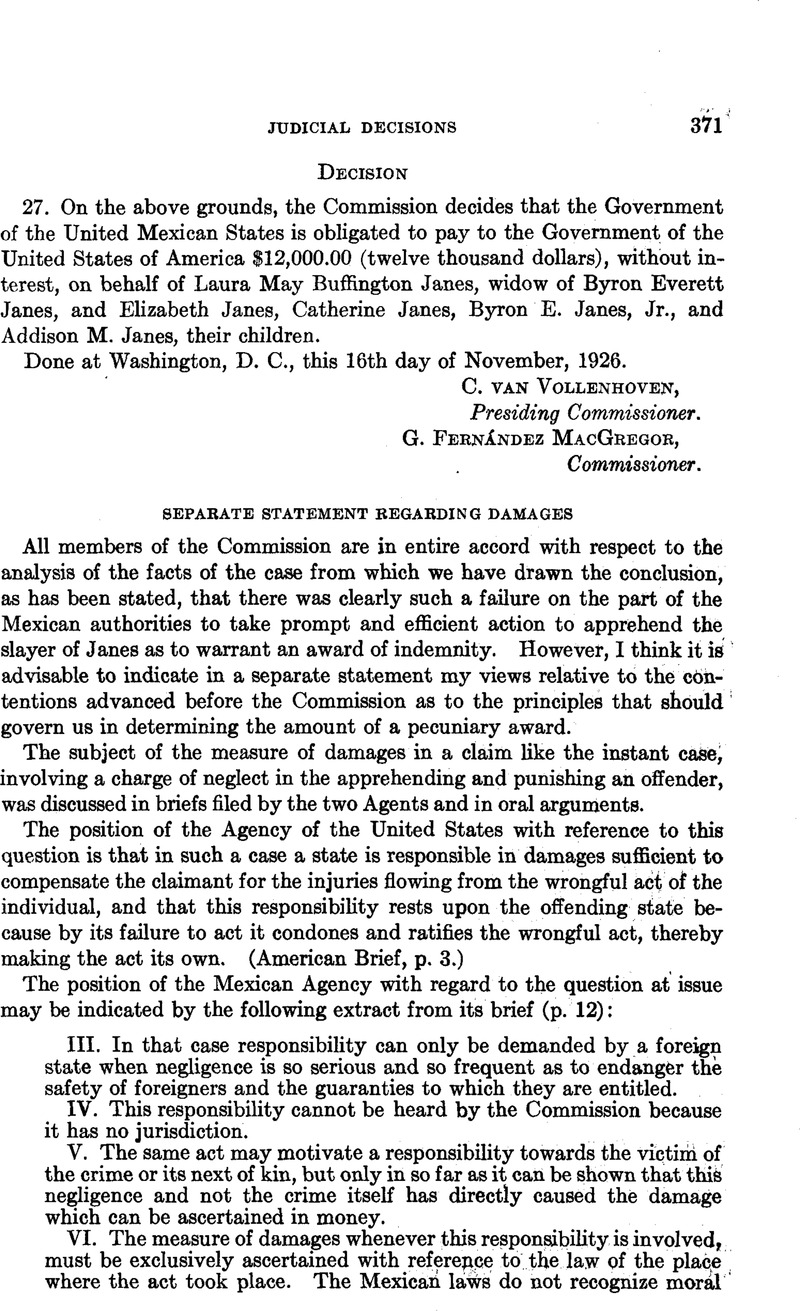No CrossRef data available.
Published online by Cambridge University Press: 06 June 2017

2 Translation. In short, the private acts of citizens do not in principle bind the responsibility of the State to which these citizens belong, but the State whose government approves and ratifies the acts of its nationals, or that refuses to repair the damage caused by one of its subjects, or itself to punish the guilty person or to deliver him up for punishment, becomes in a certain measure the author of the injury committed, renders itself an accomplice to the crime and fully justifies the offended party in placing the responsibility for the offensive or injurious acts upon the party which has, as it were, voluntarily and consciously assumed responsibility therefor.
But on the other hand the nation or sovereign must not allow their citizens to do injury to the subjects of another state, much less to offend that state itself . . . because nations must respect one another, refrain from doing anything that may offend, hurt or injure, in a word anything that may wrong others. If a sovereign who should be able to hold his subjects on the paths of justice and peace should allow them to illtreat a foreign nation as a body, or in the person of its members, the injury he does to that nation is no less than if the ill-treatment was at his own hands. . . . Yet, since the state, even though the best regulated, the sovereign, even though the most vigilant and absolute, cannot restrain at will all the acts of a subject, or to hold him on every occasion to the most exact obedience, it would be unfair to charge the nation or the sovereign with all the misdoings of the citizens. . . . But if the nation or its head approves and ratifies the act of the citizen, it makes it its own act; the offended party must then regard the nation as the true principal of the injury of which the citizen perhaps was but the tool. If the offended state has in hand the offender there is no difficulty about his doing justice and punishing him. If the offender has escaped and returned to his mother country, the sovereign must be asked to do justice, and since that sovereign must not allow his subjects to molest or wrong the subjects of another sovereign and, much less, boldly offend the foreign powers, he must compel the offender to make amends for the damage or insult, if it can be done, or subject him to exemplary punishment, or according to circumstances, deliver him up to the offended state for the proper administration of justice. . . . The sovereign who should refuse to cause the damage done by his subject to be repaired or to punish the offender or surrender him, is in a manner making himself an accessory to the injury and becomes responsible therefor.